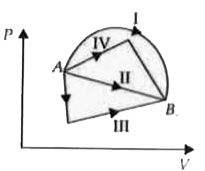New species may be formed if :
(i) DNA undergoes significant changes in germ cells
(ii) chromosome number changes in the gamete
(iii) there is no change in the genetic material
(iv) mating does not take place
Only (a)
(a) and (b)
(a) and ( c)
(a),(b) and ( c)
The correct Answer is:B
Step by step video & text solution for New species may be formed if : (i) DNA undergoes significant changes in germ cells (ii) chromosome number changes in the gamete (iii) there is no change in the genetic material (iv) mating does not take place by Environmental Studies experts to help you in doubts & scoring excellent marks in Class 14 exams.
Updated on:21/07/2023Similar Questions
Knowledge Check
New species may be formed if
(i) mating does not take place.
(ii) DNA undergoes significant changes in germ cells.
(iii) there is no change in genetic material.
(iv) chromosome number changes in gametes.A(i) and (iv)B(ii) and (iv)C(ii) arnd (iii)D(i) and (iii)During differentiation, the cells undergo structural changes in their
A) cell wall B) genetic material C) protoplasm D) unit membranesAA, BBC, DCA, CDB,DWhen an ideal gas undergoes an adiabatic change causing a temperature change ΔT
(i) there is no heat ganied or lost by the gas
(ii) the work done by the gas is equal to change in internal eenrgy
(iii) the change in internal energy per mole of the gas is CVΔT, where CV is the molar heat capacity at constant volume.A(i), (ii), (iii) correctB(i), (ii) correctC(i), (iii) correctD(i) correct
(i) Name the enzyme that catalyses the trancription of hnRNA. (ii) Why does the hnRNA need to undergo changes? List the changes hnRNA undergoes and where in the cell such changes take place?
View Solution(i) Name the enzyme that catalyses the transcription of hnRNA.
(ii) Why does the hnRNA need to undergo changes ? List the changes hnRNA undergoes and where in the cell such changes take place.
View SolutionWhen a wave goes from one level to another ,there is change in the
(i) velocity
(ii) amplitude
(iii) frequency
(iv) wavelength
Choose the correct answer
View SolutionWhich of the following changes take place during roasting ?
(i) Impurities are removed as they form volatile oxides.
(ii) Ore is converted into their volatile oxides.
(iii) Changes like oxidation , chlorination, etc. take place
View SolutionThe given P - V diagram is showing an ideal gas undergoing a change of state different paths I, II, III and IV that lead to the same change of state, then change in internal energy is

View Solution
